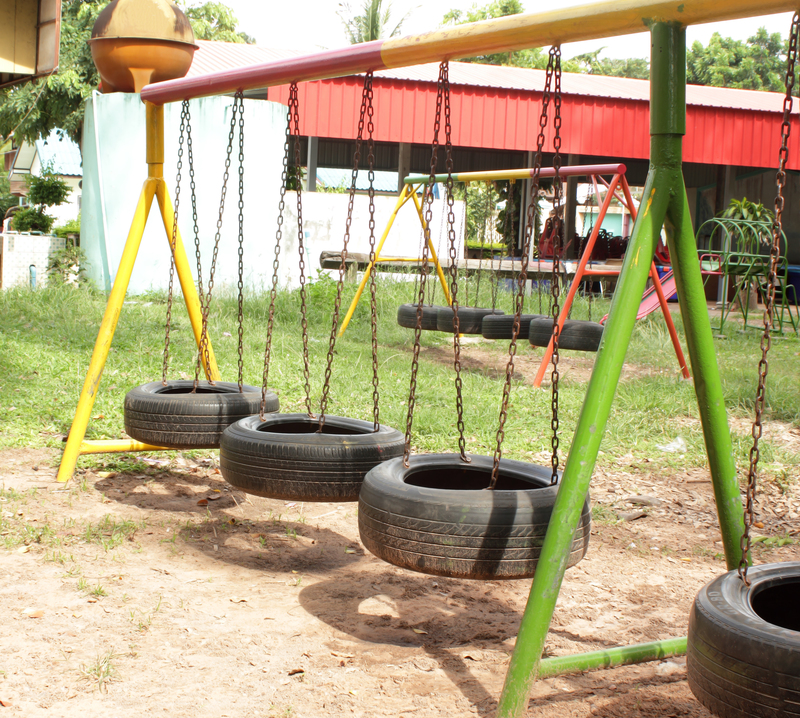Creative Tips for Improving Recycling Habits at Work
Recycling at the workplace is no longer just a tick in the box for corporate social responsibility. Today, fostering strong recycling habits at work is vital for environmental stewardship, employee engagement, brand image, and even cost-saving opportunities. Whether your office has an established recycling program or you're just getting started, injecting a dose of creativity can transform recycling from a mundane chore into an exciting, rewarding part of your company culture. This comprehensive guide will equip you with creative ways to improve recycling at work that are both impactful and fun.
Why Improving Workplace Recycling Matters
Recycling in the workplace is about much more than diverting waste from landfill. With the average office worker generating over 2 pounds of waste per day - much of which is potentially recyclable - enhanced recycling efforts can lead to:
- Reduced environmental impact
- Enhanced employee morale
- Cost savings on waste disposal
- Bolstered company reputation
- Compliance with government regulations
But even with recycling bins in place, recyclable items often end up in the trash. Here's how to break through common barriers and inspire your team with creative recycling initiatives at work.

Assessing Your Workplace Recycling Program
Before introducing new initiatives, it's essential to evaluate your current recycling habits. Consider these steps:
- Audit your waste streams: What materials are most commonly discarded?
- Observe bin locations: Are bins easy to access and clearly labeled?
- Check contamination levels: Are recyclables being mixed with trash?
- Survey employee awareness: Do staff know what can and cannot be recycled?
This analysis will spotlight areas that need creative solutions for improving recycling behaviors at work.
Creative and Effective Tips to Enhance Office Recycling
1. Make Recycling Convenient and Fun
- Unique Bin Designs: Use vibrant colors, quirky graphics, or themed decorations for recycling bins. For example, a 'Feed Me Bottles!' label on plastic recycling bins can attract attention and boost participation.
- Strategic Placement: Place recycling stations near printers, kitchens, and high-traffic areas to remind everyone to recycle. Avoid hiding bins under desks or in obscure corners.
- Gamification: Initiate monthly recycling challenges between departments, offering friendly competition and small rewards to the "greenest team."
- Personalized Reminders: Use posters featuring fun facts ("Did you know recycling one ton of paper saves 17 trees?") or display progress charts that track waste reduction over time.
2. Educate and Empower Staff
- Interactive Workshops: Host engaging sessions explaining the dos and don'ts of your recycling program. Include a hands-on sorting activity or even invite a local recycling expert for a Q&A.
- Recycling Ambassadors: Appoint volunteer "Green Champions" in each department. They can answer questions, provide encouragement, and serve as positive role models.
- Regular Communication: Send out monthly eco-tips through emails, newsletters, or your workplace chat. Share stories about team recycling victories and offer practical advice.
- Clear Signage: Invest in signs with photos, icons, and multi-language instructions. Well-labeled bins eliminate confusion and reduce contamination.
3. Expand What You Recycle
- Beyond Paper and Plastics: Set up collection points for electronics, used batteries, coffee capsules, printer cartridges, and old textiles.
- Partner With Local Recycling Facilities: Team up with vendors who recycle hard-to-recycle items. Organize special drives for rare recyclables or upcycling projects.
- Bulk Collection Drives: Schedule occasional days where employees can bring items from home, such as e-waste or old clothing, to ensure they're disposed of responsibly.
4. Incentivize Positive Recycling Behaviors
- Recognition Programs: Celebrate teams or individuals who excel at recycling with shout-outs in the company newsletter or small eco-friendly prizes (e.g., reusable water bottles, lunch bags).
- Green Points System: Award "eco-points" for sustainable actions. These can be redeemed for perks like an extra coffee break or company swag.
- Fundraising Tie-Ins: For every ton recycled, donate to an environmental charity. Making a positive impact beyond the office can further motivate employees.
5. Reduce Contamination for More Effective Recycling
- Spot Checks: Have Green Champions conduct occasional bin inspections and provide gentle feedback when items end up in the wrong place.
- Quick Reference Guides: Create wallet-sized cheat sheets or posters listing what can and can't be recycled at work.
- Easy Access to Rinse Stations: Ensure it's convenient for employees to rinse out containers before tossing them in recycling. A messy bottle can contaminate an entire batch!
- Share Success Metrics: Regularly report on the impact of correct recycling, like showing contamination rates and celebrating improvements.
6. Engage Management and Lead by Example
- Leadership Participation: When team leads and executives visibly champion recycling, it reinforces its importance throughout the workplace.
- Staff Commitments: Invite employees to take a recycling pledge or join an office green team to brainstorm new initiatives.
Innovative Office Recycling Initiatives
Zero Waste Lunches
Hold occasional zero waste lunches where everyone is challenged to bring meals in reusable containers with compostable napkins and no single-use packaging. Recognize staff who bring the greenest lunches and share photos for inspiration. This kind of event is both educational and a great team-building opportunity.
Themed Recycling Days
Create themed recycling days such as "Bottle Cap Thursday" or "Purge Your Paper Week," focused on collecting a specific recyclable. Make it fun with costumes, leaderboards, or trivia quizzes about the materials being recycled to keep participation high.
Upcycling Workshops
Host lunchtime crafting sessions where employees use clean recyclables to create art, office organizers, or decorations. Upcycling not only prevents waste but also sparks creativity and camaraderie.
'Swap Drives' for Office Supplies
Set up a "Give-and-Take Shelf" for gently used office supplies like binders, folders, and desk organizers. This encourages reuse, reduces unnecessary purchases, and ensures items live a long, useful life.
Leveraging Technology for Better Workplace Recycling
- QR Codes on Bins: Attach QR codes to recycling bins that link to a live webpage detailing what goes in each bin, common mistakes, and the latest company recycling news.
- Recycling Apps: Encourage employees to use apps that scan barcodes to determine an item's recyclability or track individual and departmental recycling efforts.
- Digital Reminders and Gamification: Integrate recycling reminders or earth-friendly challenges into your internal communication tools like Slack or Microsoft Teams.
- Real-Time Dashboards: Display live data on screens in the workplace, showing the amount recycled and setting goals for improvement.
Fostering a Sustainable Corporate Culture
Embedding good recycling habits in the office is best achieved when sustainability becomes part of your organization's DNA. Here's how to nurture a long-lasting, positive recycling culture:
- Onboarding Sustainability: Include recycling guidelines and expectations in new employee orientation.
- Ongoing Education: Refresh knowledge with periodic workshops, updates, and feedback sessions.
- Environmental Policy: Draft a company-wide environmental policy that prioritizes waste reduction and resource conservation.
- Celebrating Success: Mark milestones--like hitting recycling targets or 'zero waste' achievements--with office parties, public acknowledgments, or team outings.
Common Obstacles in Promoting Office Recycling--and How to Overcome Them
- Busy Schedules: Short, fun recycling challenges are easier to fit into hectic workdays than complex programs.
- Lack of Awareness: Interactive events and frequent, engaging communication keep recycling top of mind.
- Unclear Guidelines: Photos, language-free icons, and real-life examples on bins or digital platforms help clarify ambiguities.
- Complacency: Gamification and visible recognition reinvigorate interest and participation.
Measuring and Celebrating Your Recycling Progress
Tracking data and recognizing achievements are key for sustaining enthusiasm:
- Set Clear Targets: Define office recycling goals--such as increasing the recycling rate by 20% this quarter or eliminating contamination entirely from kitchen bins.
- Share Regular Reports: Monthly or quarterly updates help keep the team aware and motivated. Visualize results with charts or infographics.
- Reward Improvements: Small gestures--like an office breakfast or eco-friendly gift--can go a long way.

Case Study: Transforming Office Recycling Culture
At a leading tech firm, recycling rates languished at under 40%. By adding humor to recycling bin labels, organizing a 'bin decorating' competition, appointing enthusiastic "Eco Champions," and introducing a green points leaderboard, waste-to-recycling ratios improved dramatically. Within six months, the company's recycling rate hit 75%, staff engagement soared, and the program became a talking point for new hires and clients alike.
Conclusion: Embrace Creativity for Long-Lasting Recycling Habits at Work
Improving workplace recycling habits does not have to be dull or overwhelming. By making recycling a creative, convenient, and celebrated part of the workday, businesses can transform their environmental impact and office culture. Whether you're refreshing an existing program or starting from scratch, these inventive recycling tips will make a real difference--in your workplace and for the planet.
Are you ready to inspire your team and supercharge your office recycling habits? Start implementing these creative tips today and watch your workplace go green!